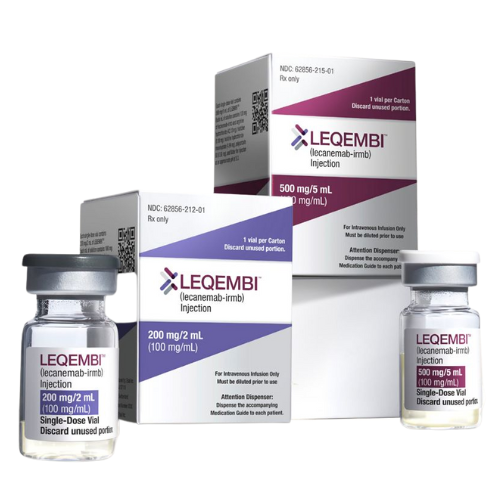The US Food and Drug Administration Center for Drug Evaluation and Research (CDER-FDA) approved Leqembi via the accelerated approval pathway to treat early and mild stages of Alzheimer’s disease.
Alzheimer’s disease, a progressive neurodegenerative disorder, affects more than 6.5 million Americans and about 1 in 9 people (10.7%) around the world aged 65 and older. For decades, specific causes of Alzheimer's remained murky. Although, it has been linked to changes in the brain characterized by the presence of amyloid beta plaques and neurofibrillary tangle–which often leads to the loss of neurons and neuron connections. Ultimately, causing impairments in the ability to remember and think.
CDER Director of Neuroscience, Billy Dunn, MD, said, “This treatment option is the latest therapy to target and affect the underlying disease process of Alzheimer’s, instead of only treating the symptoms of the disease.”
The drug name, lecanemab, which will be sold under the commercial name Leqembi, is a monoclonal antibody infusion to be given every two weeks. Evaluation of Leqembi’s efficacy in a double-blind, placebo-controlled, parallel-group, dose-finding study of 856 patients found a statistically significant reduction in brain amyloid plaque (a marker of Alzheimer’s disease) from baseline to Week 79.
 Source: Eisai Co.; everydayhealth.com
Source: Eisai Co.; everydayhealth.com
Approval of the drug was based upon the result of Phase 2 clinical trials, but the results of Phase 3 randomized, controlled clinical trial to confirm the drug's clinical benefit have recently been reported and the agency anticipates receiving the data soon.
Leqembi, however, also includes risks of infusion-related reactions, headache and amyloid-related imaging abnormalities (ARIA). Infusion-related reactions may come in the form of flu-like symptoms, nausea, vomiting and changes in blood pressure. ARIA on the other hand commonly presents itself in the form of temporary swelling in certain areas of the brain and may also include small spots of bleeding in or on the surfaces of the brain, but usually resolves over time.
Following stern criticism of the medical community with the approval of Aduhelm (an earlier category of treatment for Alzheimer's disease) that was found to have approval irregularities, prescribing Leqembi will only be appropriate in patients with mild cognitive impairment or mild dementia stages of the disease as such is the population in which treatment was conducted and studied in clinical trials.
To know more information on this breakthrough, you can read the release from FDA here.
Want to sell equipment to clinical scientists studying Alzheimer's disease? Or partner with any of Clinical Org’s 20,000+ lab users, including:
- Lab Managers
- Regional Distributors
- Lab Directors and Technicians
- Researchers
- Medical Doctors
And more.
Your quickest way to make it to the clinical community starts with just a click.